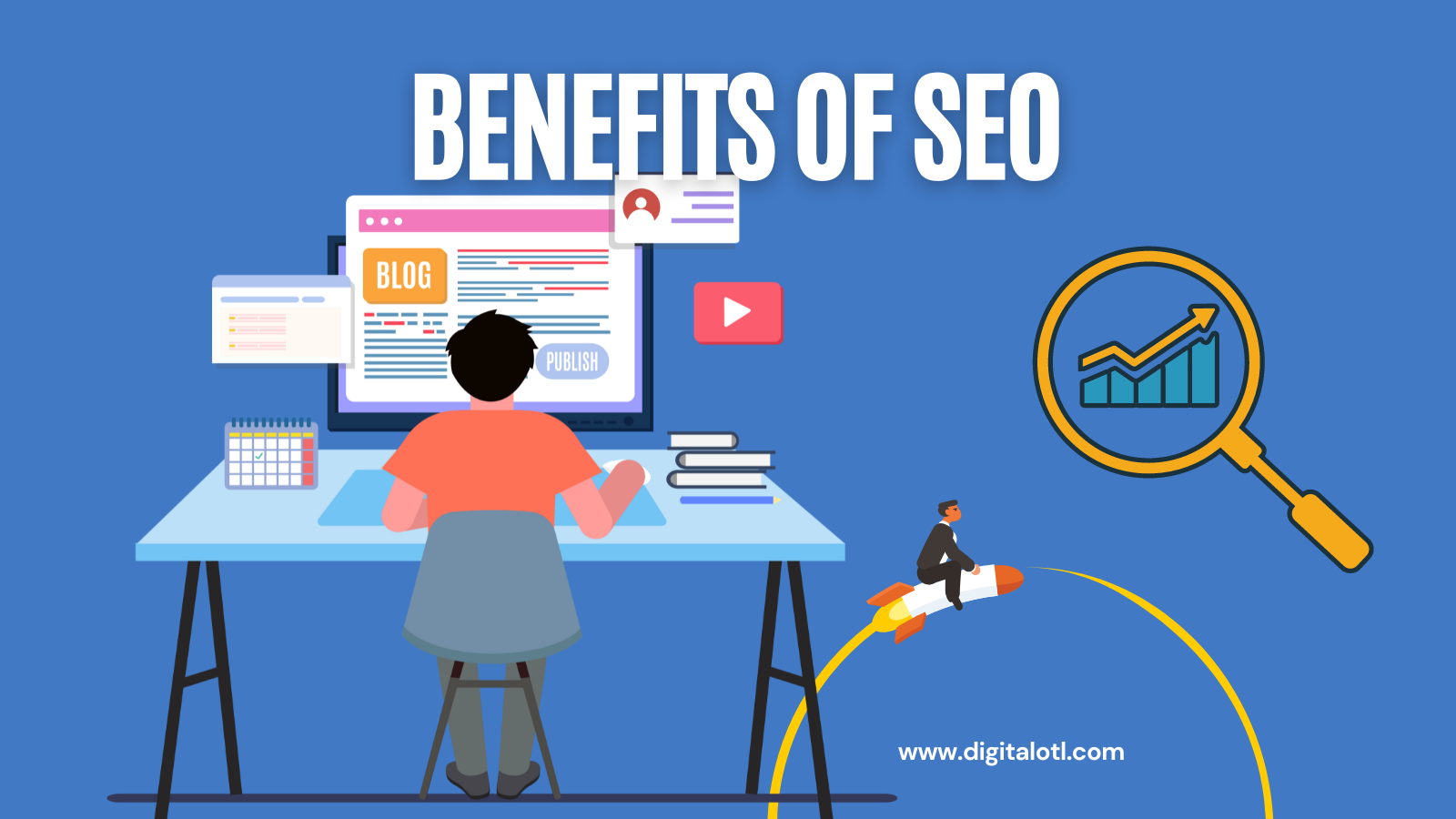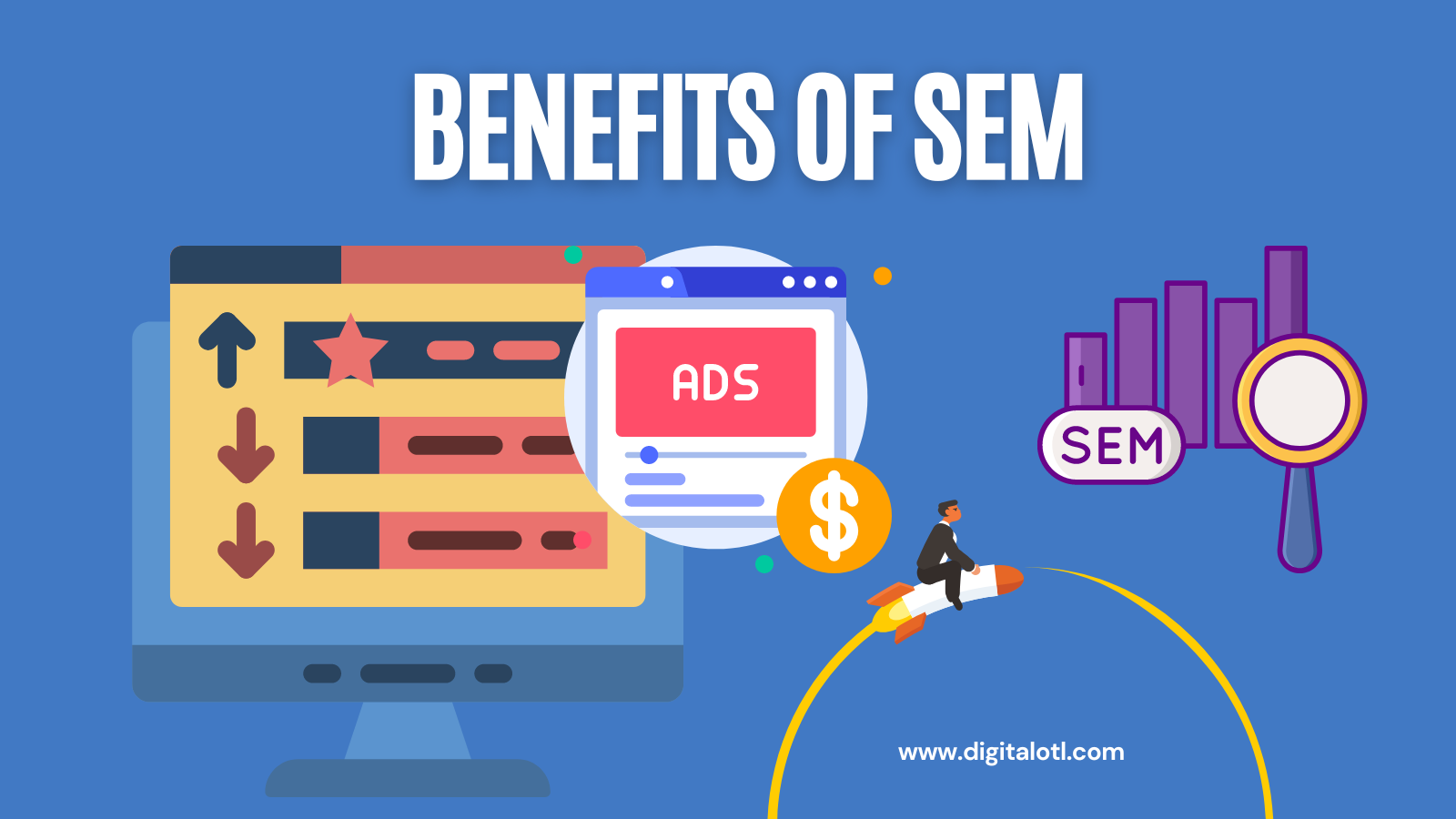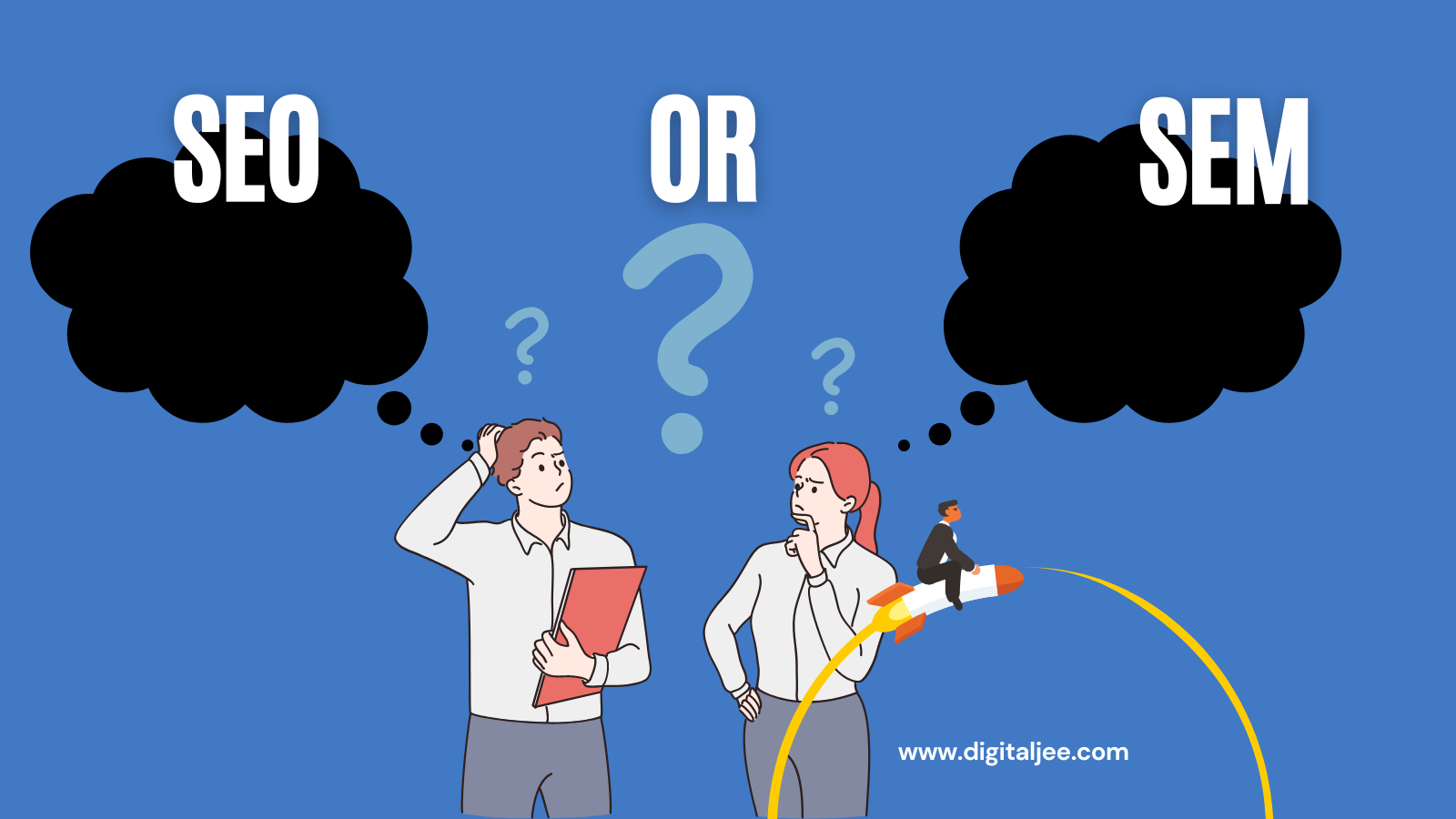In the vast and ever-evolving digital landscape, businesses are constantly seeking effective strategies to increase their online visibility and drive relevant traffic to their websites. Search engine optimization (SEO) and search engine marketing (SEM) are two powerful techniques that can significantly impact your online presence and ultimately contribute to your business’s success. However, determining the most suitable option that aligns perfectly with your requirements remains a crucial decision. In this comprehensive guide, we will delve into the world of SEO and SEM, exploring their similarities, and differences, and helping you make an informed decision.
Table of contents
Related Article For you: Mastering the Art of High-Quality Backlinks Building Must Read
Understanding SEO
Enhancing the visibility of your website in organic search results involves the implementation of search engine optimization (SEO) techniques. When a user searches for a specific query on search engines like Google, SEO aims to ensure that your website appears prominently in the search engine results pages (SERPs). By optimizing various elements, such as on-page content, meta tags, URL structure, and backlinks, you can enhance your website’s relevance and authority in the eyes of search engines.
The Benefits of SEO

Organic Traffic
One of the key advantages of SEO is the ability to drive organic, unpaid traffic to your website. By targeting relevant keywords and optimizing your content, you can attract users actively searching for products or services related to your business.
Long-Term Results
While SEO requires time and effort to yield significant results, the impact can be long-lasting. By consistently applying effective SEO strategies, you can establish a solid online presence and maintain a steady stream of organic traffic over time.
Credibility and Trust
Appearing on the first page of search engine results instills a sense of credibility and trust in your brand. Users tend to perceive websites ranking higher in organic search as more reliable and authoritative, leading to increased click-through rates and conversions.
Understanding SEM
Search engine marketing (SEM), on the other hand, involves paid advertising to increase a website’s visibility on search engines. SEM primarily revolves around pay-per-click (PPC) campaigns, where businesses bid on keywords and pay when their ads are clicked. The most common platform for SEM is Google Ads, which enables businesses to display their ads prominently in search results and across various websites within Google’s advertising network.
The Benefits of SEM

Immediate Results
Unlike SEO, which requires time for your website to climb the organic rankings, SEM can deliver instant results. With a well-optimized PPC campaign, your ads can appear at the top of search results, driving immediate traffic to your website.
Targeted Advertising
SEM allows you to precisely target your audience based on demographics, location, interests, and search behavior. This level of targeting ensures that your ads reach users who are more likely to be interested in your products or services, maximizing your return on investment (ROI).
Measurable Performance
SEM provides comprehensive analytics and tracking tools that allow you to monitor the performance of your campaigns in real time. You can gain insights into the number of clicks, impressions, conversions, and the overall effectiveness of your ads, empowering you to make data-driven decisions and optimize your campaigns for better results.
Choosing the Right Strategy for Your Business

Now that we have explored the key aspects of SEO and SEM, let’s discuss how you can determine the right approach for your business.
Consider Your Goals
Start by defining your business goals and objectives. Are you looking for immediate results, or are you willing to invest in long-term growth? If you need quick visibility and instant traffic, SEM might be the right choice. However, if you aim to build a sustainable online presence and attract organic traffic over time, SEO should be your primary focus.
Evaluate Your Budget
SEM involves paying for every click on your ads, which can become costly, particularly for highly competitive keywords. Consider your budget and allocate resources accordingly. If you have a limited budget but still want to increase your online visibility, focusing on SEO might be a more cost-effective option.
Analyze Your Competition
Conduct a thorough analysis of your industry and competitors’ online presence. Are your competitors heavily investing in SEM campaigns? Are they ranking well organically? Understanding your competition’s strategies can help you determine the most effective approach for your business. If your competitors dominate the paid advertising space, you might need to invest in SEM to level the playing field. Conversely, if they have a strong organic presence, prioritizing SEO can help you differentiate and stand out.
Long-Term Strategy
Consider your business’s long-term goals. Search engine optimization (SEO) demands persistent dedication and continuous optimization as it operates on a long-term strategic approach. If you’re in it for the long haul and want to build sustainable organic traffic, SEO should be your focus. On the other hand, if you have short-term marketing campaigns or promotions, SEM can provide quick visibility and immediate results.
Synergistic Approach
While SEO and SEM are distinct strategies, they can work together synergistically to maximize your online visibility. By combining both approaches, you can leverage the immediate benefits of SEM while simultaneously investing in the long-term growth of your organic search presence through SEO. This integrated strategy can provide a comprehensive and effective online marketing approach.
Conclusion
In conclusion, the choice between SEO and SEM depends on various factors, including your business goals, budget, competition, and long-term strategy. Both strategies offer unique advantages and can help you increase your online visibility and attract relevant traffic. It’s important to analyze your specific needs and make an informed decision based on your business objectives.
Keep in mind that SEO and SEM are not mutually exclusive alternatives, highlighting the fact that they can coexist harmoniously. You can integrate both approaches to create a holistic online marketing strategy that leverages the strengths of each. By consistently optimizing your website for search engines and strategically investing in paid advertising, you can position your business for success in the digital landscape.
Frequently Asked Questions (FAQs)
Q1: What’s the actual difference between SEM and SEO?
SEO (Search Engine Optimization) is the process of optimizing your website to improve its organic visibility in search engine results. SEM (Search Engine Marketing) involves paid advertising to increase a website’s visibility on search engines.
Q2: Which is better, SEO or SEM?
The choice between SEO and SEM depends on various factors such as your business goals, budget, and long-term strategy. SEO is a long-term investment that can yield sustainable organic traffic, while SEM provides immediate results through paid advertising. It’s often beneficial to integrate both strategies for a comprehensive online marketing approach.
Q3: How much time it takes to see results with SEO?
SEO is a gradual process, and it typically takes time to see significant results. The timeline can vary depending on factors such as the competitiveness of your industry, the quality of your website, and the effectiveness of your SEO efforts. It’s important to be patient and consistently implement best practices to achieve long-term success.
Q4: How does SEM work?
SEM involves creating paid advertising campaigns using platforms like Google Ads. Advertisers bid on specific keywords, and their ads are displayed in search results or on partner websites. Advertisers pay when their ads are clicked, making it a cost-effective way to drive targeted traffic to their websites.
Q5: Can SEO and SEM work together?
Absolutely! SEO and SEM can complement each other in an integrated strategy. By leveraging the immediate results of SEM and the long-term benefits of SEO, businesses can maximize their online visibility and attract relevant traffic. The synergy between the two approaches can lead to a more comprehensive and effective online marketing strategy.
Q6: How do I choose the right keywords for my SEO or SEM campaigns?
Keyword research is crucial for both SEO and SEM. Start by identifying relevant keywords related to your products or services and analyze their search volume and competition. Tools like Google Keyword Planner can help you find valuable keywords with high search volume and reasonable competition. Consider the intent of your target audience and select keywords that align with their search queries.
Q7: Should I hire an SEO or SEM agency?
Whether to hire an SEO or SEM agency depends on your resources, expertise, and goals. If you have the necessary knowledge and time to dedicate to these strategies, you can manage them in-house. However, if you lack expertise or want to focus on your core business activities, hiring an experienced agency can provide valuable insights and optimize your results.
Q8: How can I track the performance of my SEO or SEM campaigns?
A: Both SEO and SEM provide analytics tools to track and measure performance. For SEO, you can use tools like Google Analytics and Search Console to monitor website traffic, keyword rankings, and user behavior. SEM platforms like Google Ads provide detailed reports on clicks, impressions, conversions, and other key metrics. Regularly analyzing these metrics will help you optimize your campaigns for better results.
Q9: Is it possible to outrank competitors in search engine results?
A: Yes, it is possible to outrank competitors with effective SEO and SEM strategies. By implementing best practices, creating high-quality content, and targeting relevant keywords, you can improve your website’s visibility and surpass your competitors in search engine rankings. Consistency, continuous optimization, and staying up-to-date with industry trends are essential for achieving

